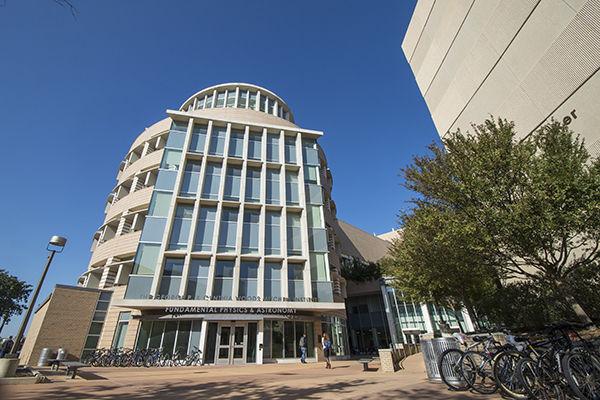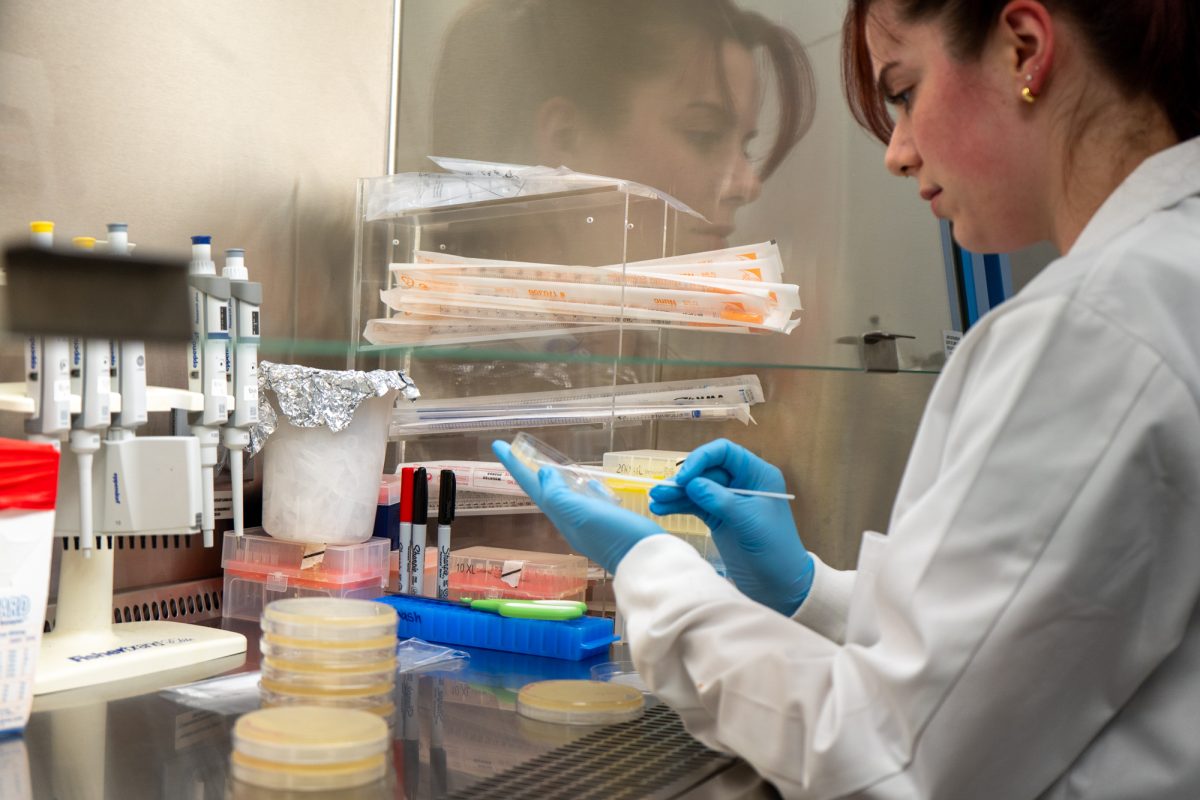In its inaugural year, questions remain as to how the new freshman admissions policy in the 25 by 25 Initiative will accommodate freshmen with significant college credit earned in high school.
The Common First Year plan delays acceptance into a degree-granting major by at least a semester for all incoming engineering freshmen — a policy that has drawn criticism from several students who encountered trouble and confusion when using high school college credits to advance into upper-level engineering classes early.
Administrators within the Dwight Look College of Engineering say such situations are prepared for and that policies are in place that ensure students who enroll with significant high school credits are accommodated.
Reed Hermes, general engineering sophomore, is in his first year at Texas A&M. He earned 52 AP credit hours in high school but ran into confusion among engineering admissions officers when he first tried to enroll. Hermes said Common First Year initially prevented him from advancing into upper-level engineering classes his freshman year and would have cost him his scholarship eligibility, which required him to take a specific amount of credit hours.
“I went back and forth with my adviser for a month and a half until I was finally allowed to sign up for a class that the syllabus said I had all the credits for but couldn’t be let into just because of the plan,” Hermes said. “After registering for all the classes that I could, I still only had nine hours of classes, and faced the possibility of losing scholarship eligibility.”
Hermes’ circumstance is unusual, but not unheard of. About 2 percent of first-time college engineering majors at Texas A&M enrolled with “excessive” amounts of AP or dual credit hours, said Cathy Sperry, assistant director for academic support services at the Look College. Two percent of the nearly 3,000 first-time college engineering students equates to about 60 students.
When six academic advisers in Texas A&M engineering departments were asked to comment as to how they would treat situations such as Hermes’, they either avoided the question or were unsure of the facts and directed The Battalion to engineering administration.
Jeffrey Zhao is a general engineering junior who also enrolled at Texas A&M this fall. He attended the Texas Academy of Math and Science, where he amassed about 80 college credits. He said Common First Year initially caused him trouble, but he was able to work with his adviser to create a schedule that would not greatly hinder his plan to graduate early.
“I came in with around 80 college credits from the Texas Academy of Math and Science, which is a program where you take actual college courses at UNT for two years, so I had already gotten my Physics 218 credit and three years worth of calculus,” Zhao said. “I talked a lot with my adviser and he had to get clearance from the engineering department to let me register for my two upper level classes this semester.”
Kelly Brumbelow, assistant department head for undergraduate programs in civil engineering, said he was unsure of the reason for the advisers’ reluctance to comment, but said the plan has brought with it necessary adjustments for faculty and staff.
“I can say that the whole college — faculty, staff, and students — is making a lot of adjustments right now, and there is some learning as we go,” Brumbelow said. “That is unavoidable during big changes. However, everyone is motivated to see our students be successful, and that motivation is guiding us as we implement the new systems.”
Brumbelow said while there have been a few students who have entered with a large number of AP and dual credit hours, the possibility for these students to take upper-level courses during their first year depends on whether they arrive with credits for their basic math and science courses.
“For those students, permission has been granted by the College of Engineering to take upper-level engineering courses for which the students have credit for prerequisites,” Brumbelow said. “The difference in this scenario as opposed to before [Common First Year] is that the student does not yet have a guarantee of acceptance to a particular major.”
Sperry said the College of Engineering educated incoming students on their high school credit options within Common First Year many times, and emphasized the options available during summer New Student Conferences. She said advisers evaluated the high school credits brought by students prior to their New Student Conference and would have assisted with creating a class schedule for any student who had a significant number of hours.
Blake Smith, general engineering freshman, said even with his biomedical engineering adviser present at New Student Conference to answer questions, he felt he didn’t get enough time to speak with him on his own.
“It wasn’t like I had a chance to talk to him one-on-one for a good amount of time to clarify my schedule, classes or any other information I wanted to talk to him about,” Smith said. “When I had the chance to talk to him about my schedule 10 minutes before registration, it was difficult to get his attention because there were 20 or so students asking questions too.”
P.K. Imbrie, director of undergraduate academic programs in the College of Engineering, said nothing has changed in regards to high school credits between Common First Year and the college’s previous enrollment policy.
“Even without Common First Year, students were previously still required to take Engineering 111 and 112, and as far as I know there aren’t any AP courses that can give you credit for those courses,” Imbrie said.
Hermes said he attributes the issues of his circumstance to the fact that different advisers have different interpretations of the plan.
“The plan has pretty vague terminology, and it leaves it up to the advisers to decide what it means,” Hermes said. “My adviser decided ‘upper-level’ classes meant anything after freshman year, which made everything even more difficult.”
Freshmen engineers are required to take common courses in places like the Mitchell Physics Building before acceptance into a degree-granting program.
Photo by Tanner Garza.
Engineering initiative causes freshman enrollment snags
November 12, 2014

0
Donate to The Battalion
Your donation will support the student journalists of Texas A&M University - College Station. Your contribution will allow us to purchase equipment and cover our annual website hosting costs.
More to Discover







